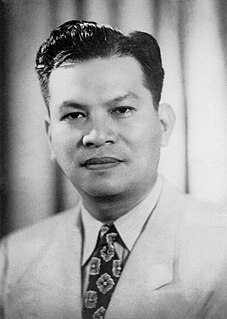A Quote by Ruth Simmons
If instead policy makers and program managers participate in an interdisciplinary assessment team, make informal visits to local families and have in-depth conversations with local providers and health authorities, the real needs and complex challenges of organizing good reproductive health services become apparent.The first country that implemented this participatory program of assessment, research and policy development was Brazil. I was one of the outsiders who provided support to the initiative.
Quote Topics
Apparent
Assessment
Authorities
Become
Brazil
Challenges
Complex
Conversations
Country
Depth
Development
Families
First
Good
Health
Health Services
In-Depth
Informal
Initiative
Instead
Interdisciplinary
Local
Make
Makers
Managers
Needs
Organizing
Outsiders
Participate
Participatory
Policy
Policy Makers
Program
Provided
Providers
Real
Reproductive
Reproductive Health
Research
Services
Support
Team
Visits
Related Quotes
If policy makers and program managers participate in an interdisciplinary assessment team, make informal visits to local families and have in-depth conversations with local providers and health authorities, the real needs and complex challenges of organizing good reproductive health services become apparent.
We have emphasized the importance of applied action research because it allows evidence-based policy and program development and a focus on learning. We are also committed to using a participatory approach in which local people, local program managers and providers, local researchers, women's health activists, and national decision-makers play the leading role. International "experts" from technical assistance agencies or universities can make important contributions, but they certainly don't have all the answers.
We wanted to see how access to care can be expanded and service quality can be improved when one uses a participatory approach to program development. We showed that major changes become possible if you work in a participatory manner, listen to local people, diagnose what the problems are, provide training and identify where there are opportunities for mobilizing local resources to take action. In time leaders from other municipalities expressed interest in replication and the project succeeded in expanding innovations to three other areas.
When we conducted focus group interviews in the first municipality in Brazil before initiating the pilot project, a woman commented: Getting an appointment in the public sector municipal health services is like "winning the lottery." I would like to make it possible for many women and men in Latin America to win the lottery and receive the type of reproductive health services they so urgently need.
The problem is the policy makers don't have practitioners in the policy team. You won't make an IT policy without consulting a Narayan Murthy or Nandan Nilekani. But for energy, people think they know everything and they know what to do for it. That's how the policies are created in Delhi and that needs to change.
I came in with a healthy skepticism about these programs. My team evaluated them. We scrubbed them thoroughly. We actually expanded some of the oversight, increased some of the safeguards. But my assessment, and my team's assessment was that they help us prevent terrorist attacks. In the abstract, you can complain about 'Big Brother' and how this is a potential program run amok. But when you actually look at the details, then, I think we've struck the right balance.
When we talk about 'reproductive rights' this is what we mean. It's the difference between people as objects, and people as agents: between regarding people as pawns on the policy chessboard and recognizing them as the players, the decision-makers, the drivers of policy; autonomous individuals intimately concerned with the direction of their own lives. Under these conditions women, especially, enjoy better health and live fuller lives.
Those with health insurance are overinsured and their behavior is distorted by moral hazard. Those without health insurance use their own money to make decisions based on an assessment of their needs. The insured are wasteful. The uninsured are prudent. So what's the solution? Make the insured a little more like the uninsured.
Withdraw from the Canada Pension Plan... Collect our own revenue from personal income tax... Resume provincial responsibility for health-care policy. If Ottawa objects to provincial policy, fight in the courts... [E]ach province should raise its own revenue for health... It is imperative to take the initiative, to build firewalls around Alberta.
I have been working with the World Health Organization since 1989 in an effort to redefine approaches to contraceptive introduction. This has given me the opportunity to insist that strategies for research and policy development must simultaneously address people's needs, the capacity of programs to provide good quality of care, and the range of technological options available.




























